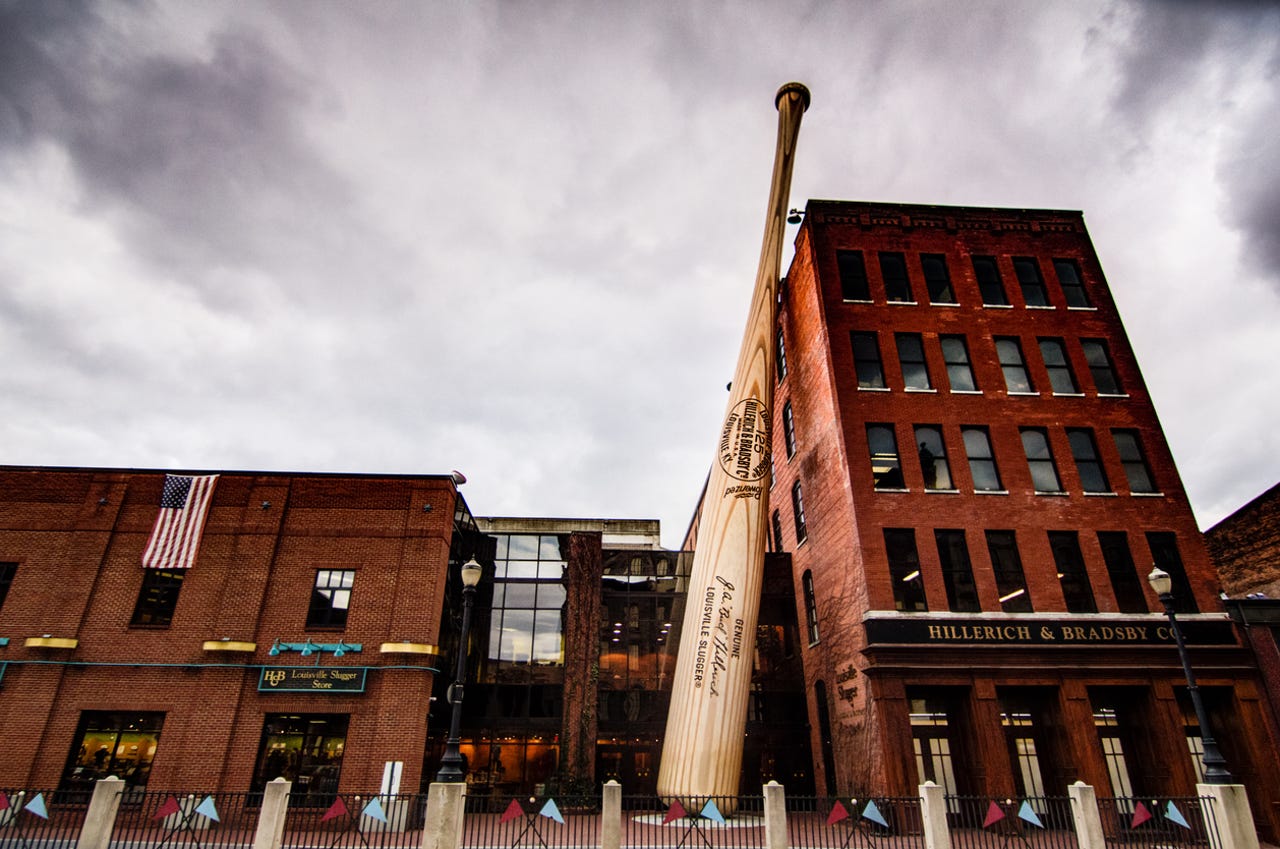How Louisville became the first smart city on the IFTTT platform


Air quality is a common concern in Louisville, Ky., and now updates are available on IFTTT.
Giving citizens access to information is a key component of being a smart city. In Louisville, Ky., the city debuted a new service earlier this month on the IFTTT platform to give residents an easy way to track and monitor air quality via applets.
"This is all in an effort to bridge what we would like to do for our smart city, which is how do we take smart city technologies and improve services we deliver to citizens and businesses within Louisville metro government," said Grace Simrall, chief of civic innovation for the city of Louisville.
IFTTT, which stands for "if this, then that," is a web-based service where users can create chains of simple conditional statements, known as applets, that are triggered based on a variety of changes to whatever is being measured.
SEE: Louisville and the Future of the Smart City (special report)
In Louisville's case, it's about air quality. If the air quality changes, with data provided by Louisville Metro's Air Pollution Control District, subscribers to IFTTT's Smart Louisville channel can opt to receive that information in a multitude of ways through various applets. Options include receiving notifications through mobile devices, or through smart home products such as the LIFX light bulb or Philips Hue light bulb, with the bulbs changing colors based on air quality readings. A green bulb means air quality is good, and a red bulb means stay indoors if you have health issues affected by air quality.
Matt Gotth-Olsen, a designer with the digital services team for the city of Louisville, said, "We wanted to create a very flexible service because so many people digest information in different ways. Some people like email, some people like text, some like email or a phone call. IFTTT allows a lot of flexibility not only for us, but the citizen."
Providing instant data via the IFTTT platform is one way that the city can further its open data initiative, rather than requiring people to download the data in a flat file and manipulate it to gather insights. "Louisville is one of the first cities to have an open data policy as an executive order, and to have an open data portal. We've been tracking usage of the data and realize that it really could be a lot more useful for citizens if we could make it easier to consume the data," Simrall said.
"There's a big move to APIs (application programming interfaces) with the idea being these are interactive ways of working with data. IFTTT is a great platform for recognizing the values. The idea is you can create some sort of triggering event to make it easier for you to interact with the data," she said.
Air quality was chosen for the first service because the data is already available. The Ohio Valley air quality in Louisville is of interest to many residents, because high pollen and mold counts can make it difficult for people to breathe if they have certain health issues, such as asthma.
"The beauty of IFTTT is that now we can have it automated within their daily lives. You can easily set it up so that you get a notification," she said.
See related content: IFTTT: The smart person's guide (TechRepublic)
Linden Tibbets, CEO and founder of IFTTT, said he's thrilled to have Louisville as the first city on the platform: "We've been following their fantastic work towards becoming a smart city for some time. It's impressive, and we think this partnership is the natural next step. We can't wait to see what comes next."
Louisville is the first of what IFTTT hopes will be many cities taking advantage of the service.
"We were really pleased with the response to the launch of the Smart Louisville service. On Twitter, we've seen dozens of people sharing the news and including their own city's handles, asking them to join IFTTT. It's clear that people want more access to government data, and they don't just want to download a spreadsheet. They want to be able to use it. Watch this space -- we have no doubt other cities will soon follow Louisville's example," Tibbets said.
He said there isn't a learning curve to access IFTTT. "Applets work with popular services like Google Drive, Philips Hue light bulbs, email, etc. Over 400 services are on IFTTT, in fact. So there's a good chance people will find something they're already familiar with. Applets are also easy to turn on it -- it's a simple switch. We're constantly looking for ways to improve the experience on ifttt.com and in the app, but millions of people are currently using IFTTT to do more with the services they love. We think Louisvillians will get the hang of it pretty quickly, if they aren't already users."
As for Louisville, this won't be the only applet they offer on IFTTT. "We absolutely intend to start rolling out regular new applets. Air quality was the first one that we had in API format. We will look at other APIs we have and see if they make sense to add to the platform. When we roll out open data we have to make sure it's not just in a flat file but in an API for it to make sense," Simrall said.
Also see
- Louisville to co-create a smart city with its citizen scientists
- How the city of Louisville is using IoT and big data
- When a smart apartment meets a smart city (CNET)
- Louisville mayor Greg Fischer discusses smart cities at CES 2017 (CNET)
- The world's smartest cities: What IoT and smart governments will mean for you (TechRepublic)
- How's the air up there? In Louisville, you can just ask your light bulbs (CNET)